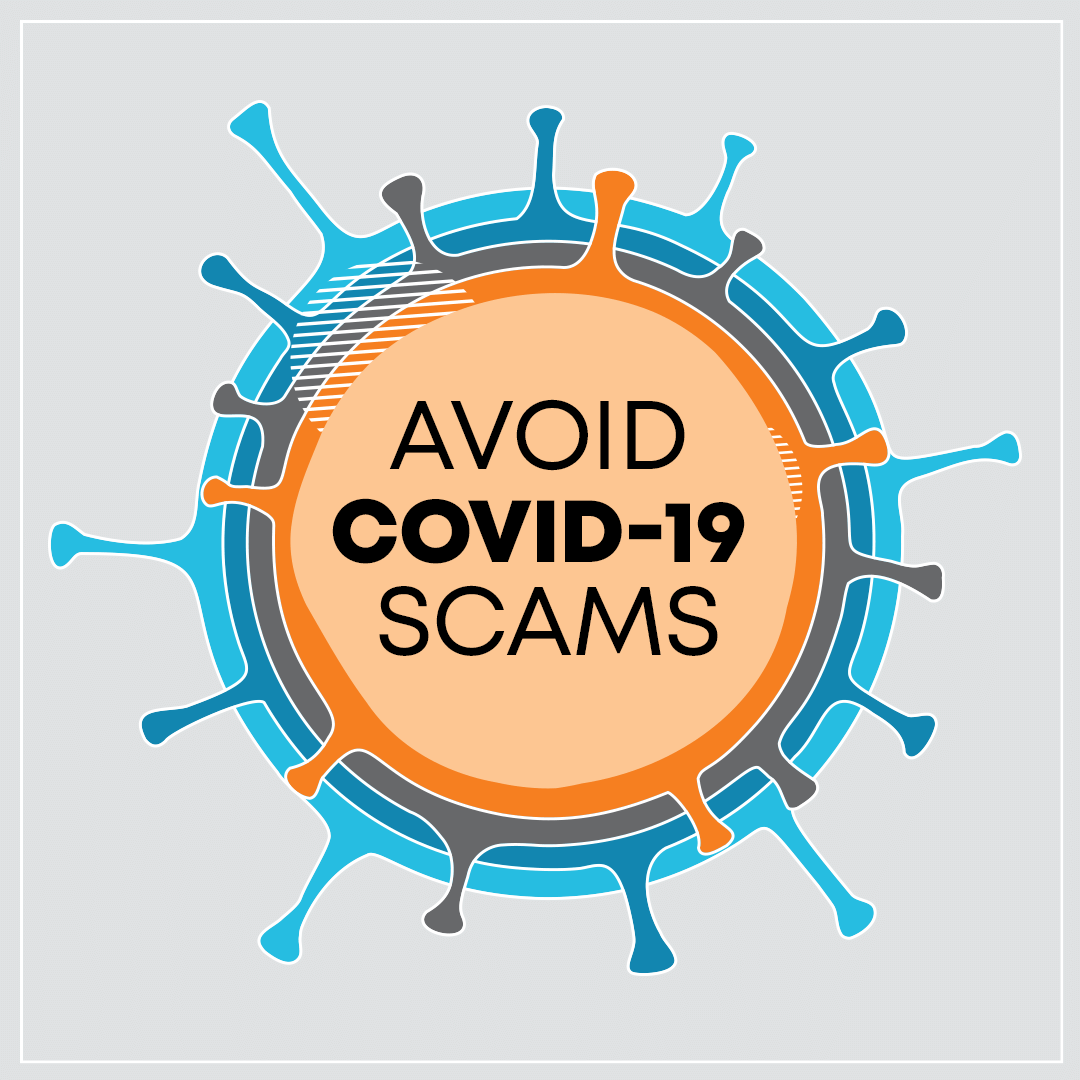How to Avoid Coronavirus (COVID-19) Scams

April 23, 2020
Scammers are quick to exploit emergencies to cheat people out of money, and the coronavirus pandemic unfortunately is no exception.
Below are some scams that are using the current COVID-19 situation to trick individuals, especially the elderly:
1. Beware products claiming a cure
From special teas to essential oils and testing kits, many companies have been claiming that their products can prevent or treat coronavirus.
Currently there are no approved vaccines, drugs, or products available to prevent or cure the virus.
2. Hang up on impostor callers
Phony callers that pretend to represent a government agency are one of the biggest scams. If you receive calls where someone is asking for your personal information, hang up! Government agencies will not call and ask for information, and they never make threats about arrest or legal action. These scammers are preying on our hopes and fears, trying to steal your money and your personal information.
3. Don’t click on texts or links in emails that you’re not expecting
Scammers are targeting consumers waiting for their government stimulus check. They are requesting personal information, telling people it is needed before you can receive your stimulus check.
- The government will not ask you to pay anything in advance to get this money. There are no fees, no charges, nothing.
- The government will not call to ask for your Social Security number, bank account, or credit card number. Anyone who does is a scammer.
- Checks have not been issued yet. Anyone who tells you they can get you the money now (or faster) is a scammer.
Additionally, some individuals that get Social Security benefits have reported they are receiving fake letters claiming their benefits will be postponed due to COVID-19 related office closures. Social Security is not suspending any benefits and will never request people pay a fee to receive their benefits.
4. Only give money to charities you know
Whenever a crisis occurs, scammers try to tap into your goodwill to seek donations for a worthy cause. It’s very easy for anyone to set up an account on various platforms to scam money from the public.
If you would like to help families affected by Alzheimer’s and COVID-19 , Alzheimer’s Los Angeles appreciates donations, no matter how large or small.
For more information on how to avoid scams, visit The Federal Trade Commission’s website.
We know being a caregiver can be tough, but you don’t have to face it alone. Alzheimer’s Los Angeles provides you with FREE information, education, and support on your journey. Call our helpline for assistance: 844.HELP.ALZ (844-435-7259).
